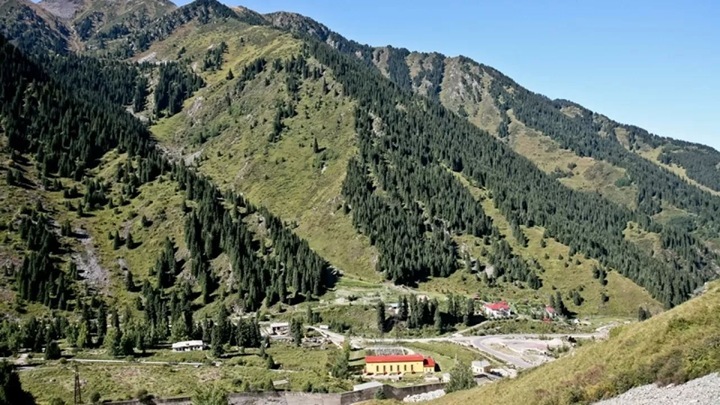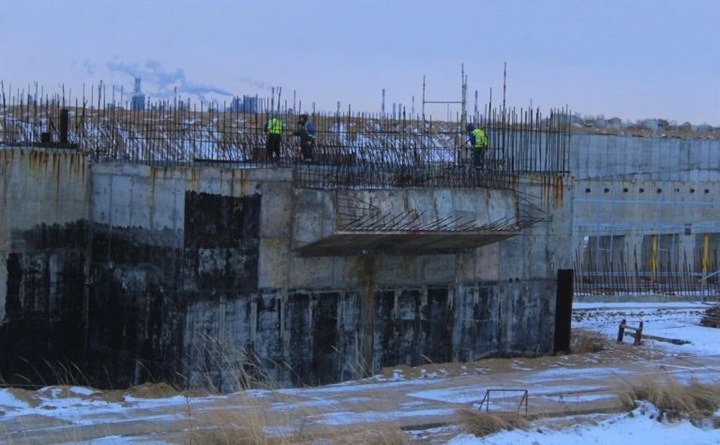ADB has allocated a million dollars for the rehabilitation of the oldest hydroelectric power plants in Kazakhstan
The Asian Development Bank (ADB) has allocated US$ 1 million for technical assistance to prepare a project for the full-scale rehabilitation of the Almaty hydroelectric power plant cascade in Kazakhstan. The financing was provided by the Clean Energy Fund as part of the Clean Energy Financing Partnership Fund, which combines the resources of the governments of Australia, Norway, Spain, Sweden and the United Kingdom.

The cascade of Almaty HPPs, consisting of 11 small and medium–sized power plants with a total capacity of 44.5 MW, is the oldest in the country – its facilities were commissioned between 1944 and 1963. Despite its relatively modest size, the cascade is of strategic importance for the southern region of Kazakhstan and especially for Almaty, the largest city and consumer of electricity, according to the ADB technical report.
The technical condition of the cascade is of serious concern. A preliminary assessment conducted in 2023 with funding from the World Bank revealed critical problems: significant equipment wear, corrosion, leaks in key generation elements. The situation is aggravated by the outdated design of many systems and a shortage of spare parts, which makes it difficult to quickly eliminate malfunctions. Of particular concern is the condition of the Almaty head pond dam with a height of 22 meters, designed and built more than 70 years ago, where leaks are observed.
The technical assistance project, designed for the period from May 2025 to December 2026, will be implemented under the leadership of Samruk-Energo and Almaty Power Stations. Key tasks include a comprehensive study of the condition of structures, concrete core tests, reinforcement analysis, evaluation of hydraulic structures and pipelines, as well as ultrasonic testing and water flow measurements.
Particular attention will be paid to assessing the climatic stability of the cascade. Experts will conduct an analysis of the dam’s safety, including monitoring systems, water intake facilities, leak investigation and earthquake resistance assessment. In the course of the work, recommendations will be developed for the modernization or strengthening of aging structures in accordance with modern safety standards and earthquake resistance requirements.
An important component of the project will be updating the hydrological model to take into account the potential impacts of climate change, such as increased peaks and frequency of floods. This will help in the preparation of a project that will be able to safely cope with future flood events and protect cascade power plants.
The updated cascade of Almaty HPPs will not only provide energy for the country’s largest city, but will also provide support services for the southern energy system necessary for the stability and integration of new renewable energy sources, the ADB document says. In addition to generating electricity, the cascade provides water supply to the southern part of Almaty, covering 30% of the city’s needs.
Of particular value is the cascade’s ability to “black start” – in the event of serious system accidents with the collapse of the power system and the loss of intersystem connections, the cascade can provide electricity to the nearest power plants and help restore the network connection. The entire cascade has the ability to provide flexible generation and auxiliary services for the power system necessary for the integration of renewable energy.
The rehabilitation of the Almaty HPP cascade is part of a broader effort to increase the flexibility of Kazakhstan’s energy system. In 2024, the Ministry of Energy of Kazakhstan, the operator of the power grid “Kazakhstan Electric Grid Management Company” and ADB discussed a plan of proposed short-, medium- and long-term actions to increase the flexibility of the Kazakh power grid. Supporting hydropower is part of a long-term action.
It is noteworthy that several units of the Almaty HPP cascade were delivered under the Lend-Lease Act of 1941, when the United States supplied the necessary goods to the Soviet Union from 1941 to 1945 during World War II.
Alexander Eskendirov (Rivers.Help!)


